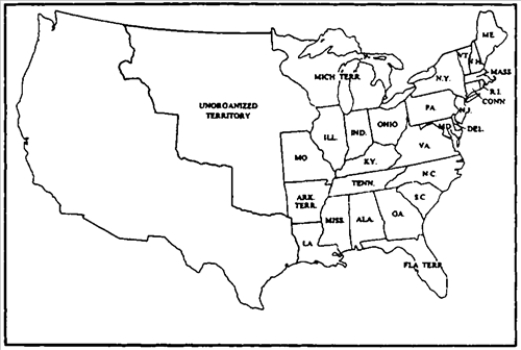Exam 9: The Rise of the South
A yeoman farmer in the South between 1800 and 1860 was a small farmer who
C
Examine the nature and extent of slave resistance. What was the primary objective of most modes of resistance?
Slave resistance took many forms, including acts of rebellion, sabotage, escape, and everyday acts of defiance. The nature and extent of slave resistance varied depending on the time period, location, and specific conditions of slavery.
One of the primary objectives of most modes of resistance was to assert some level of control and autonomy over their own lives. This could take the form of small acts of resistance, such as feigning illness or breaking tools, to more overt forms of rebellion, such as organized revolts or running away.
In many cases, the ultimate goal of resistance was to secure freedom and escape the bonds of slavery. However, resistance also served as a means of preserving cultural traditions, maintaining a sense of community and identity, and challenging the dehumanizing aspects of slavery.
Overall, slave resistance was a complex and multifaceted phenomenon that reflected the resilience and determination of enslaved individuals to resist their oppression and assert their humanity.
Which of the following was the main determinant of a man's wealth and social position in the South?
B
Examine the husband-and-wife relationship within the planter class. How did this relationship differ from the comparable relationship within a slave family? How was it similar? How did upper-class southern women react to their roles as wives, mothers, and slave mistresses?
Which of the following best describes the relations between men and women of the planter class?
Instructions:
∙ Identify each item. Give an explanation or description of the item. Answer the questions who, what, where, and when.
Explain the historical significance of each item. Establish the historical context in which the
∙ item exists. Establish the item as the result of or as the cause of other factors existing in the society under study. Answer this question: What were the political, social, economic,
and/or cultural consequences of this item?
-the task system
Explain the importance of African influences and of religion in the emergence of a distinctive African American culture. How did slaves' culture in general, and African influences and religion in particular, help slaves survive the ordeal of slavery?
Instructions:
∙ Identify each item. Give an explanation or description of the item. Answer the questions who, what, where, and when.
Explain the historical significance of each item. Establish the historical context in which the
∙ item exists. Establish the item as the result of or as the cause of other factors existing in the society under study. Answer this question: What were the political, social, economic,
and/or cultural consequences of this item?
-Denmark Vesey
Approximately what percentage of white southern families owned no slaves in 1860?
Instructions:
∙ Identify each item. Give an explanation or description of the item. Answer the questions who, what, where, and when.
Explain the historical significance of each item. Establish the historical context in which the
∙ item exists. Establish the item as the result of or as the cause of other factors existing in the society under study. Answer this question: What were the political, social, economic,
and/or cultural consequences of this item?
-the practice of mortgaging slaves
Instructions:
∙ Identify each item. Give an explanation or description of the item. Answer the questions who, what, where, and when.
Explain the historical significance of each item. Establish the historical context in which the
∙ item exists. Establish the item as the result of or as the cause of other factors existing in the society under study. Answer this question: What were the political, social, economic,
and/or cultural consequences of this item?
-removal of the Shawnees
Instructions:
∙ Identify each item. Give an explanation or description of the item. Answer the questions who, what, where, and when.
Explain the historical significance of each item. Establish the historical context in which the
∙ item exists. Establish the item as the result of or as the cause of other factors existing in the society under study. Answer this question: What were the political, social, economic,
and/or cultural consequences of this item?
-the state of Virginia's legislative and public debate over slavery 1832)
Instructions:
∙ Identify each item. Give an explanation or description of the item. Answer the questions who, what, where, and when.
Explain the historical significance of each item. Establish the historical context in which the
∙ item exists. Establish the item as the result of or as the cause of other factors existing in the society under study. Answer this question: What were the political, social, economic,
and/or cultural consequences of this item?
-the "ostrich game"
Instructions:
∙ Identify each item. Give an explanation or description of the item. Answer the questions who, what, where, and when.
Explain the historical significance of each item. Establish the historical context in which the
∙ item exists. Establish the item as the result of or as the cause of other factors existing in the society under study. Answer this question: What were the political, social, economic,
and/or cultural consequences of this item?
-Population distribution in the antebellum South
Map Exercise 9-1
On the following map and using an historical atlas as a reference:
 -Refer to Map Exercise 09-1. What impact did this expansion have on the South?
-Refer to Map Exercise 09-1. What impact did this expansion have on the South?
Filters
- Essay(0)
- Multiple Choice(0)
- Short Answer(0)
- True False(0)
- Matching(0)